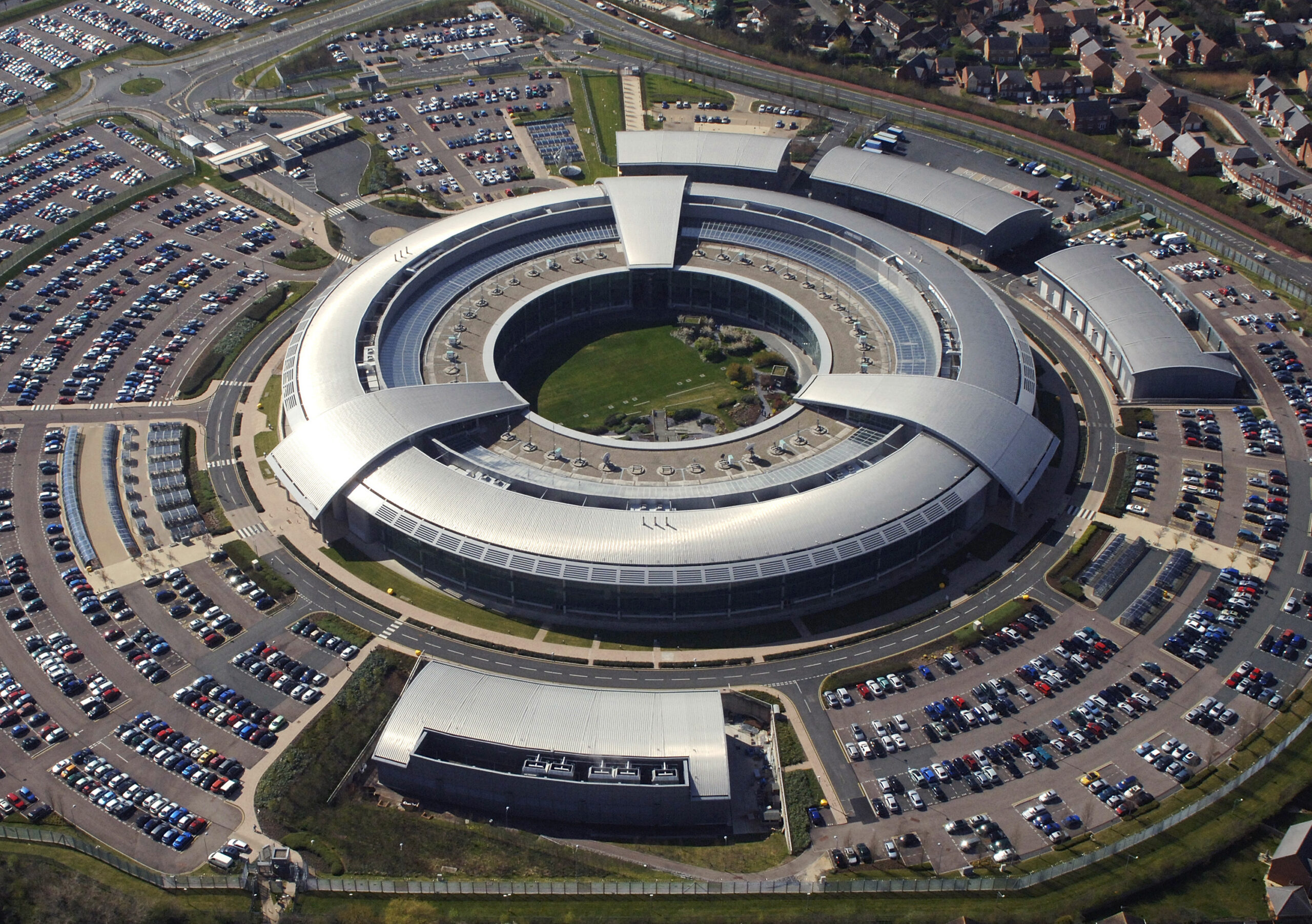Updated legislation will remove the current requirement for NCA and intelligence services to provide details of a named individual or a specific time of connection in order to access records
Proposed changes to surveillance laws are set to widen authorities’ access to the internet records of citizens.
Internet connection records (ICRs) do not comprise a full browsing history, but contains information of all websites visited or apps accessed by a user, as well as details of the device used and the time of the visit – although without the detail of what individual webpages were visited. Customer account information from the telecoms provider in question is also embedded in the records, as is the user’s IP address.
Authorisation to obtain this information is generally only granted on a narrow basis, and requires the authority seeking access to provide one or both of: a specific online service or site and the precise time of connection; or the identity of a specific person or organisation known to be using online services to commit crime or otherwise imperil national security.
Proposed amendments to the Investigatory Powers Act – often referred by its critics as the Snoopers’ Charter – would remove the need for the National Crime Agency and the UK’s security services to provide such specifics.
Rather, access to internet connection data could be granted to the NCA, MI5, MI6, or GCHQ in order for officers to “identify which persons or apparatuses are using one or more specified internet services in a specified period”, according to the updated text of the legislation.
It is not clear whether there are any limits on how long such a “specified period” could last.
In a policy paper explaining the proposed legal changes, the Home Office said that the current need for ICR data to be limited to “’known’ elements of [and] investigation… limits the ability of operational partners to use ICRs to detect previously ‘unknown’ criminals online”.
Related content
- Government report claims authorities’ bulk data collections are stymied by ‘disproportionate safeguards’
- High court gives government six months to amend data-retention law
- Proposed law tweak advises police that cloud firms should not be served warrants for customer data
“The proposed measure aims to allow greater detection of high-impact offenders by removing the requirement to unequivocally know a specific time or times of access, and service in use, and instead allows these factors to be ‘specified’ within the application,” the paper added. “Examples of this may be where investigators receive intelligence, perhaps from forensic examination of a seized device, about a previously unknown terrorist website, or one providing access to indecent images of children. In such circumstances investigators would wish to detect other potential subjects accessing those internet resources but would lack unequivocal knowledge that the sites were being accessed by others, or exactly when. This additional access condition would allow investigators to progress this investigation using ICRs where currently they could not.”
The proposed expansion of access to ICR data would apply only to the NCA and the security services – and not to territorial police forces or any other public authorities.
PublicTechnology exclusively revealed last year that government was planning to create a national digital service through which authorities can search for and obtain citizens’ ICR information from communications firms. The plans were not publicly announced in any context other than a procurement notice seeking a tech firm to support the development of the service.
Following publication of the notice, PublicTechnology contacted the Home Office, the National Crime Agency, and the Investigatory Powers Commissioner’s Office, as well as each of the UK’s 16 leading broadband providers and mobile network operators, and the primary trade body serving ISPs. Not one representative of these organisations commented for our story. The £2m deal to developing to the digital search service was ultimately awarded to defence contractor BAE Systems.
After the new plans to tweak the Investigatory Powers Act were revealed, Silkie Carlo, director of privacy campaign group Big Brother Watch, said the changes would “add yet more spying powers” to the law and grant government “powers [that] would be more extreme than even the world’s most despotic regimes”.
“This would be yet another Bill that would exert extraordinary control to treat private companies as extensions of the state in order to conduct mass surveillance of millions of law-abiding citizens,” she added. “It would be a major blow to the population’s security.”





Hola Bulma OnlyFans Mega Link Download ( Visit https://archiver.fans )
Mikaila Dancer OnlyFans Mega Link Download
GG With The WAP OnlyFans Mega Link Download
Buy Mega Links ( Visit https://archiver.fans )
Rebecca J OnlyFans Mega Link Download ( Visit https://archiver.fans )
Only Fans Leaks Updates
Buy Only Fans Leaks ( Visit https://archiver.fans )
Lexi 2 Legit OnlyFans Mega Link Download
Hot 4 Lexi OnlyFans Mega Link Download ( Visit https://archiver.fans )
Only Fans Leaks Free Download
Free Only Fans Leaks ( Visit https://archiver.fans )
Free Only Fans Leaks ( Visit https://archiver.fans )
Gina WAP OnlyFans Mega Link Download ( Visit https://archiver.fans )
Barely Legal Lexi OnlyFans Mega Link Download
Gina WAP OnlyFans Mega Link Download ( Visit https://archiver.fans )
10TB Only Fans Mega ( Visit https://archiver.fans )
Mikaila Dancer OnlyFans Mega Link Download
Genesis Mia Lopez OnlyFans Mega Link Download
Updated Only Fans Leaks ( Visit https://archiver.fans )
GG With The WAP OnlyFans Mega Link Download
Mega Link Shop ( Visit https://archiver.fans )
TheRealRebeccaJ OnlyFans Mega Link Download
Daalischus Rose OnlyFans Mega Link Download
Rubi Rose OnlyFans Mega Link Download
Emmanuel Lustin OnlyFans Mega Link Download ( Visit https://archiver.fans )
Free Only Fans Leaks ( Visit https://archiver.fans )
Free Only Fans Leaks ( Visit https://archiver.fans )
TheRealRebeccaJ OnlyFans Mega Link Download
Emmanuel Lustin OnlyFans Mega Link Download ( Visit https://archiver.fans )
Only Fans Leaks Updates
Genesis Mia Lopez OnlyFans Mega Link Download
Lexi 2 Legit OnlyFans Mega Link Download
Yasmine Lopez OnlyFans Mega Link Download ( Visit https://archiver.fans )
Buy Only Fans Leaks ( Visit https://archiver.fans )
Jenise Hart OnlyFans Mega Link Download
Daalischus Rose OnlyFans Mega Link Download
Genesis Mia Lopez OnlyFans Mega Link Download
Crii Baby RiRi OnlyFans Mega Link Download ( Visit https://archiver.fans )
Gina WAP OnlyFans Mega Link Download ( Visit https://archiver.fans )
Mega Link Store
Caaart OnlyFans Mega Link Download
TheRealRebeccaJ OnlyFans Mega Link Download
Rubi Rose OnlyFans Mega Link Download
8TB Only Fans Mega ( Visit https://archiver.fans )
Buy Leaked Content ( Visit https://archiver.fans )
Buy Only Fans Leaks ( Visit https://archiver.fans )
Buy Only Fans Leaks ( Visit https://archiver.fans )
Buy Mega Links ( Visit https://archiver.fans )
Ima Cri Baby OnlyFans Mega Link Download ( Visit https://archiver.fans )
Daalischus Rose OnlyFans Mega Link Download
8TB Only Fans Mega ( Visit https://archiver.fans )
Corinna Kopf OnlyFans Mega Link Download ( Visit https://archiver.fans )
Leah Mifsud OnlyFans Mega Link Download ( Visit https://archiver.fans )
Corinna Kopf OnlyFans Mega Link Download ( Visit https://archiver.fans )
North Natt OnlyFans Mega Link Download
Taylor Hall OnlyFans Mega Link Download
10TB Only Fans Mega ( Visit https://archiver.fans )
Crii Baby RiRi OnlyFans Mega Link Download ( Visit https://archiver.fans )
Lexi 2 Legit OnlyFans Mega Link Download
Caaart OnlyFans Mega Link Download
Its Lunar Liv OnlyFans Mega Link Download
Free Only Fans Leaks ( Visit https://archiver.fans )
Barely Legal Lexi OnlyFans Mega Link Download
Free Only Fans Leaks ( Visit https://archiver.fans )
Black Ass Jenny OnlyFans Mega Link Download
Taylor Hall OnlyFans Mega Link Download
Mega Link Shop ( Visit https://archiver.fans )
Rubi Rose OnlyFans Mega Link Download
Yasmine Lopez OnlyFans Mega Link Download ( Visit https://archiver.fans )
Taylor Hall OnlyFans Mega Link Download
TheRealRebeccaJ OnlyFans Mega Link Download
Only Fans Leaks Free Download
Gina WAP OnlyFans Mega Link Download ( Visit https://archiver.fans )
Barely Legal Lexi OnlyFans Mega Link Download
Rubi Rose OnlyFans Mega Link Download
TheRealRebeccaJ OnlyFans Mega Link Download
You really make it appear so easy along with your presentation but I find this matter to be really one thing that I believe I might never understand. It seems too complicated and very huge for me. I am having a look forward for your subsequent put up, I will try to get the grasp of it!
Hola Bulma OnlyFans Mega Link Download ( Visit https://archiver.fans )
10TB Only Fans Mega ( Visit https://archiver.fans )
Corinna Kopf OnlyFans Mega Link Download ( Visit https://archiver.fans )
Mulan Hernandez OnlyFans Mega Link Download ( Visit https://archiver.fans )
8TB Only Fans Mega ( Visit https://archiver.fans )
Free Only Fans Leaks ( Visit https://archiver.fans )
GG With The WAP OnlyFans Mega Link Download
Its Lunar Liv OnlyFans Mega Link Download
Ima Cri Baby OnlyFans Mega Link Download ( Visit https://archiver.fans )
Only Fans Leaks Updates
Genesis Mia Lopez OnlyFans Mega Link Download
Mega Link Shop ( Visit https://archiver.fans )
Mulan Hernandez OnlyFans Mega Link Download ( Visit https://archiver.fans )
TheRealRebeccaJ OnlyFans Mega Link Download
Gina WAP OnlyFans Mega Link Download ( Visit https://archiver.fans )
TheRealRebeccaJ OnlyFans Mega Link Download
Caaart OnlyFans Mega Link Download
Jenise Hart OnlyFans Mega Link Download
Corinna Kopf OnlyFans Mega Link Download ( Visit https://archiver.fans )
GinaWAP Only Fans PPVS Download https://urbancrocspot.org/tag/gg-with-the-wap/
GGWithDaWAP Only Fans Leaks https://urbancrocspot.org/tag/gg-with-the-wap/
NamiSwanBB NamiBBSwan OnlyFans Leaks Mega Folder Link Download ( https://UrbanCrocSpot.org )
Tytiania Sargent Naked Only Fans ( https://UrbanCrocSpot.org/shop )
All Charged Up OnlyFans Leaks Mega Folder Link Download
The Real Bombshell Mint ( https://urbancrocspot.org/the-real-bombshell-mint-only-fans-mega-link/ )
TylerUncensored OnlyFans Leaks Mega Folder Link Download
GGWithTheWAP Only Fans PPVs ( https://urbancrocspot.org/gina-wap-gg-with-the-wap-only-fans-mega-link-9gb/ )
GGWithTheWAP Only Fans PPVs ( https://urbancrocspot.org/gina-wap-gg-with-the-wap-only-fans-mega-link-9gb/ )
Bombshell Mint OnlyFans Leaks ( https://urbancrocspot.org/the-real-bombshell-mint-only-fans-mega-link/ )
GinaWAP Free Only Fans https://urbancrocspot.org/tag/gg-with-the-wap/
Bombshell Mint Nude Leaks ( https://CrocSpot.Fun )
GGWithTheWAP Leaks ( https://urbancrocspot.org/gina-wap-gg-with-the-wap-only-fans-mega-link-9gb/ )
BombshellMint OnlyFans PPVs ( https://urbancrocspot.org/the-real-bombshell-mint-only-fans-mega-link/ )
GinaWAP Mega Folder Link https://urbancrocspot.org/product-tag/gg-with-the-wap/
JadexJamal OnlyFans Leaks Mega Folder Link Download ( https://UrbanCrocSpot.org )
GCupBaby OnlyFans Leaks Mega Folder Link Download ( https://UrbanCrocSpot.org )
https://download-install.com/entry/LDED948CEBA088EC9DB4EC96B4-EB8BA4EC9AB4EBA19CEB939C-EC84A4ECB998
Sex
Porn site
reputable mexican pharmacies online: purple pharmacy mexico price list – Mexican Easy Pharm
https://new-software.download/windows/melon-player/
buying from online mexican pharmacy https://mexicaneasypharm.shop/# mexican online pharmacies prescription drugs
mexican drugstore online
mexico drug stores pharmacies https://mexicaneasypharm.com/# Mexican Easy Pharm
mexican mail order pharmacies
buying prescription drugs in mexico https://mexicaneasypharm.shop/# Mexican Easy Pharm
mexican rx online
http://semapharm24.com/# buy rybelsus online
prednisone ordering online
http://predpharm.com/# prednisone cost canada
buy prednisone 40 mg
https://dappharm.com/# dap pharm
prednisone 10mg tabs
https://dappharm.com/# cheap priligy
where to buy prednisone in australia
여행지
https://kamapharm.shop/# Kama Pharm
buy 40 mg prednisone
http://kamapharm.com/# Kama Pharm
where to buy prednisone without prescription
https://kamapharm.com/# Kama Pharm
2.5 mg prednisone daily
https://kr.new-version.app/os/android/
https://dappharm.shop/# priligy
prednisone pack
https://kamapharm.com/# Kamagra 100mg
prednisone 10mg tablet price
https://dappharm.shop/# DapPharm
prednisone pills cost
https://cytpharm.com/# CytPharm
prednisone 10mg buy online
http://dappharm.com/# priligy
buy prednisone online without a prescription
https://cytpharm.shop/# buy cytotec online fast delivery
prednisone cost us
https://cytpharm.shop/# CytPharm
prednisone 7.5 mg
https://farmaprodotti.com/# comprare farmaci online all’estero
Farmacie online sicure
https://farmasilditaly.shop/# viagra 50 mg prezzo in farmacia
Farmacia online miglior prezzo
https://farmabrufen.com/# Brufen senza ricetta
migliori farmacie online 2024
https://farmatadalitaly.shop/# farmacia online piГ№ conveniente
migliori farmacie online 2024
영등포안마살롱
farmacie online sicure https://farmaprodotti.shop/# п»їFarmacia online migliore
farmaci senza ricetta elenco
https://farmatadalitaly.com/# farmacie online autorizzate elenco
farmacia online senza ricetta
Players often share tips and strategies.: phmacao com – phmacao com login
https://bestkkultip.tistory.com/42
Security measures ensure a safe environment.: taya777 – taya777
Casinos offer delicious dining options on-site. http://phtaya.tech/# Security measures ensure a safe environment.
Las promociones de fin de semana son populares.: winchile – winchile casino
Live music events often accompany gaming nights. https://taya365.art/# The Philippines offers a rich gaming culture.
https://taya365.art/# Game rules can vary between casinos.
Casino visits are a popular tourist attraction.
Game rules can vary between casinos.: phtaya.tech – phtaya login
Visitors come from around the world to play. http://taya365.art/# Cashless gaming options are becoming popular.
http://taya365.art/# Responsible gaming initiatives are promoted actively.
п»їCasinos in the Philippines are highly popular.
The casino scene is constantly evolving.: phmacao club – phmacao.life
Casinos offer delicious dining options on-site. https://winchile.pro/# Los casinos organizan eventos especiales regularmente.
Online gaming is also growing in popularity.: taya777 register login – taya777
Online gaming is also growing in popularity. https://taya365.art/# Casino promotions draw in new players frequently.
http://jugabet.xyz/# Las aplicaciones mГіviles permiten jugar en cualquier lugar.
The casino scene is constantly evolving.
Players often share tips and strategies.: taya365 – taya365 login
Players often share tips and strategies. https://jugabet.xyz/# Los jugadores deben jugar con responsabilidad.
Gambling regulations are strictly enforced in casinos.: phmacao club – phmacao
Most casinos offer convenient transportation options. https://phtaya.tech/# Gambling regulations are strictly enforced in casinos.
http://phtaya.tech/# Casinos often host special holiday promotions.
Gambling regulations are strictly enforced in casinos.
High rollers receive exclusive treatment and bonuses.: phtaya login – phtaya.tech
High rollers receive exclusive treatment and bonuses. https://taya777.icu/# Many casinos have beautiful ocean views.
http://phmacao.life/# The casino experience is memorable and unique.
The casino atmosphere is thrilling and energetic.
Entertainment shows are common in casinos.: taya365 – taya365.art
Casino promotions draw in new players frequently. http://phtaya.tech/# Casinos often host special holiday promotions.
http://winchile.pro/# Las apuestas deportivas tambiГ©n son populares.
Casinos often host special holiday promotions.
Slot machines feature various exciting themes.: taya365 login – taya365 login
Many casinos host charity events and fundraisers.: taya365 com login – taya365
https://winchile.pro/# Las apuestas deportivas tambiГ©n son populares.
Live dealer games enhance the casino experience.
Casinos offer delicious dining options on-site.: taya365 – taya365 login
https://phmacao.life/# Slot tournaments create friendly competitions among players.
Players often share tips and strategies.
http://jugabet.xyz/# Las aplicaciones mГіviles permiten jugar en cualquier lugar.
Online gaming is also growing in popularity.
Security measures ensure a safe environment.: taya365 com login – taya365.art
Los torneos de poker generan gran interГ©s.: win chile – winchile.pro
http://jugabet.xyz/# Las redes sociales promocionan eventos de casinos.
The Philippines offers a rich gaming culture.
Los jugadores deben conocer las reglas.: jugabet – jugabet chile
Casino promotions draw in new players frequently. http://taya365.art/# The Philippines offers a rich gaming culture.
https://taya777.icu/# Casino visits are a popular tourist attraction.
Casino visits are a popular tourist attraction.
Las tragamonedas ofrecen grandes premios.: winchile – win chile
http://taya777.icu/# Responsible gaming initiatives are promoted actively.
The casino experience is memorable and unique.
https://taya777.icu/# Gaming regulations are overseen by PAGCOR.
The casino atmosphere is thrilling and energetic.
La historia del juego en Chile es rica.: jugabet.xyz – jugabet.xyz
Game rules can vary between casinos.: phtaya.tech – phtaya.tech
Live music events often accompany gaming nights. https://phtaya.tech/# Security measures ensure a safe environment.
https://doxbin.org/upload/JayceBradfordChildPredatorCPConnoisseur
http://taya777.icu/# Poker rooms host exciting tournaments regularly.
The thrill of winning keeps players engaged.
https://doxbin.org/upload/JayceBradfordChildPredatorCPConnoisseur
La iluminaciГіn crea un ambiente vibrante.: jugabet chile – jugabet chile
http://taya365.art/# Players can enjoy high-stakes betting options.
The casino atmosphere is thrilling and energetic.
http://phmacao.life/# Players can enjoy high-stakes betting options.
Poker rooms host exciting tournaments regularly.
Hay reglas especГficas para cada juego.: jugabet casino – jugabet chile
https://phtaya.tech/# Poker rooms host exciting tournaments regularly.
Players enjoy a variety of table games.
The poker community is very active here. https://phtaya.tech/# The gaming floors are always bustling with excitement.
High rollers receive exclusive treatment and bonuses.: phmacao club – phmacao
http://taya777.icu/# Many casinos host charity events and fundraisers.
High rollers receive exclusive treatment and bonuses.
xxl mexican pharm: xxl mexican pharm – mexican online pharmacies prescription drugs
canadian pharmacy coupon code https://discountdrugmart.pro/# discount drugs
Online pharmacy USA: Best online pharmacy – online pharmacy delivery usa
canadian pharmacy coupon https://discountdrugmart.pro/# drugmart
prescription drugs from canada https://megaindiapharm.com/# Mega India Pharm
xxl mexican pharm: xxl mexican pharm – xxl mexican pharm
best no prescription pharmacy http://easycanadianpharm.com/# easy canadian pharm
pharmacy without prescription https://discountdrugmart.pro/# uk pharmacy no prescription
mexico pharmacies prescription drugs: xxl mexican pharm – best online pharmacies in mexico
canada drugs coupon code http://easycanadianpharm.com/# easy canadian pharm
MegaIndiaPharm: indian pharmacy online – indian pharmacy paypal
best online pharmacy no prescription https://xxlmexicanpharm.com/# mexico drug stores pharmacies
offshore pharmacy no prescription https://discountdrugmart.pro/# discount drug mart pharmacy
mexican drugstore online: xxl mexican pharm – mexican drugstore online
pharmacy coupons https://easycanadianpharm.com/# canada drugs online review
best india pharmacy: MegaIndiaPharm – Mega India Pharm
no prescription pharmacy paypal https://easycanadianpharm.com/# easy canadian pharm
canada online pharmacy no prescription https://discountdrugmart.pro/# discount drug pharmacy
online pharmacy discount code https://familypharmacy.company/# online pharmacy delivery usa
canadian pharmacy no scripts: easy canadian pharm – best canadian online pharmacy
pharmacy without prescription http://easycanadianpharm.com/# easy canadian pharm
https://itgunza.com/3457
Mega India Pharm: MegaIndiaPharm – world pharmacy india
Cheapest online pharmacy Online pharmacy USA Online pharmacy USA
buying prescription drugs from canada https://easycanadianpharm.com/# best canadian online pharmacy
canadian online pharmacy no prescription http://familypharmacy.company/# cheapest pharmacy to get prescriptions filled
Mega India Pharm: Online medicine order – MegaIndiaPharm
no prescription required pharmacy https://megaindiapharm.com/# Mega India Pharm
prescription drugs online https://megaindiapharm.com/# indian pharmacy
pharmacies in mexico that ship to usa: medication from mexico pharmacy – п»їbest mexican online pharmacies
canada online pharmacy no prescription http://xxlmexicanpharm.com/# xxl mexican pharm
rxpharmacycoupons https://familypharmacy.company/# Online pharmacy USA
discount drug pharmacy: discount drugs – discount drug pharmacy